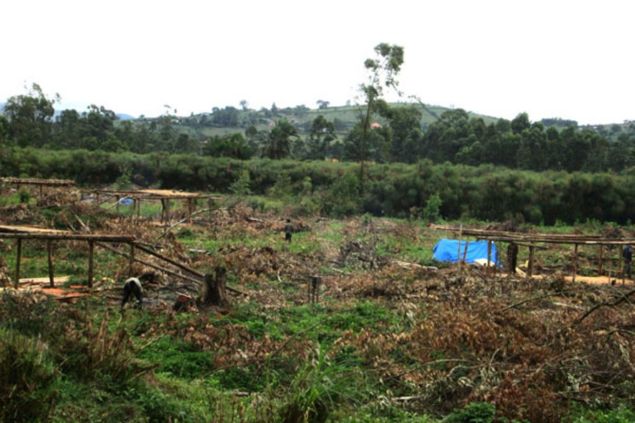In response to the escalating issue of wetland encroachment, leaders have come forward to advocate for stricter government intervention. Recognizing the critical role wetlands play in environmental conservation and their impact on local communities, these leaders emphasize the need to implement robust measures to combat encroachment effectively.
Heightened Enforcement: Leaders stress the importance of increasing enforcement efforts to deter and penalize individuals involved in wetland encroachment. Strengthening the presence of law enforcement agencies and establishing specialized task forces can help curb illegal activities and hold perpetrators accountable.
Public Awareness Campaigns: Raising awareness among the general public about the ecological significance of wetlands is crucial. Leaders propose conducting targeted campaigns to educate communities about the importance of preserving wetlands and the adverse effects of encroachment on the environment, water resources, and biodiversity. Enhanced Monitoring Systems: Investing in advanced monitoring systems, such as satellite imagery and drone technology, can provide real-time data on wetland encroachment. By improving surveillance capabilities, authorities can detect encroachment activities promptly and take swift action to prevent further damage.
Strengthening Legal Frameworks: Leaders advocate for reviewing and strengthening existing laws and regulations related to wetland protection. This includes implementing stringent penalties for offenders, streamlining legal procedures, and ensuring that legal frameworks align with international environmental standards.
Community Engagement and Alternative Livelihoods: Engaging with local communities is vital to address the root causes of wetland encroachment. Leaders propose implementing sustainable alternative livelihood programs that provide viable economic opportunities for communities dependent on wetland resources. This approach can help alleviate the pressures driving encroachment while fostering a sense of ownership and responsibility towards wetland conservation.
Collaborative Partnerships: Leaders emphasize the importance of forging partnerships between government agencies, non-governmental organizations (NGOs), and other stakeholders. Collaboration can leverage collective expertise, resources, and networks to develop comprehensive strategies, share best practices, and coordinate efforts in combating wetland encroachment.
Rehabilitation and Restoration: Efforts to restore degraded wetlands should be prioritized. Leaders suggest allocating adequate resources for the rehabilitation of encroached areas, including reforestation, removal of invasive species, and ecosystem restoration initiatives. This not only helps in reclaiming lost wetland habitats but also enhances their capacity to provide critical ecosystem services.
Regular Monitoring and Evaluation: Establishing a robust monitoring and evaluation framework is essential to assess the effectiveness of wetland conservation measures. Leaders recommend periodic assessments to gauge progress, identify gaps, and make informed decisions for continuous improvement and adaptive management.
The call for tighter government control over wetland encroachment reflects the urgent need to safeguard these vital ecosystems. By implementing a multi-faceted approach that combines enforcement, public awareness, community engagement, and restoration efforts, we can protect our wetlands for future generations.
Leaders, in collaboration with stakeholders, must work together to preserve these invaluable natural resources and ensure sustainable development that harmonizes with environmental conservation goals.

